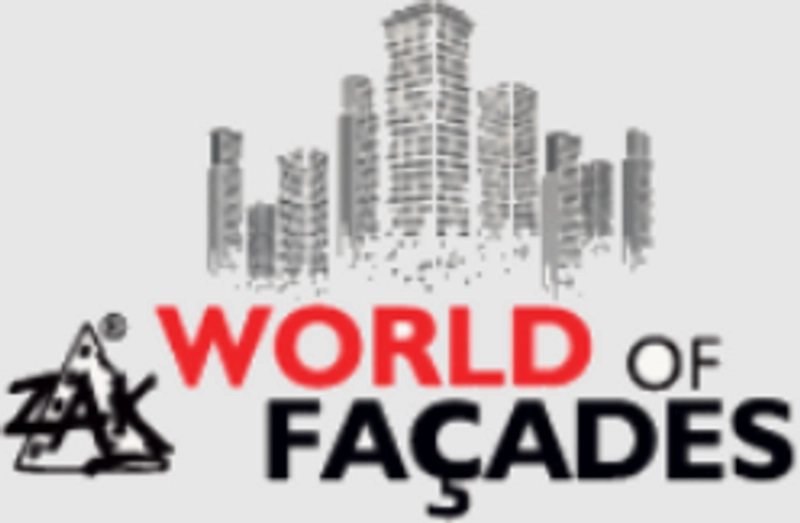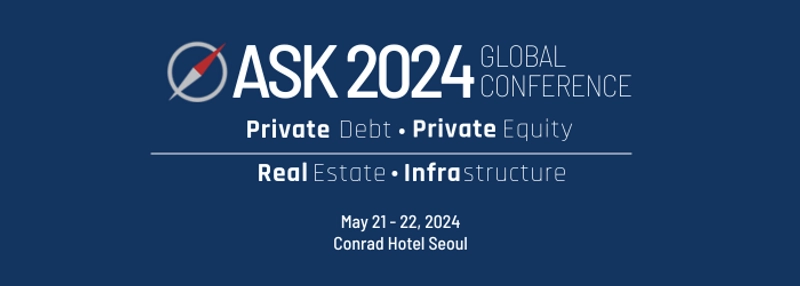Infrastructure Development Eventos en South Korea


Zak World of Facades South Korea
Zak World of Facades South Korea: Leading the Future of Facade Innovation and Sustainable Design
The Zak World of Facades South Korea, held in the bustling city of Seoul, is a distinguished event that gathers architects, engineers, facade specialists, and industry leaders under one roof. This exhibition and conference stand as a significant opportunity to explore the latest innovations in facade technology while emphasizing sustainable design principles. With a focus on cutting-edge materials and emerging trends, the event plays a pivotal role in advancing the understanding and application of modern facade engineering within the architectural community.
The event provides a comprehensive insight into the technologies that redefine how facades contribute to building performance, energy efficiency, and aesthetic appeal, making it an essential gathering for professionals aiming to stay at the forefront of the industry.
Exploring Cutting-Edge Innovations in Facade Technology
Zak World of Facades South Korea showcases an array of technological advancements that influence contemporary facade design. Participants can discover:
New materials that enhance thermal insulation and durability
Smart facade systems integrating automation for improved functionality
Advanced fabrication and installation techniques increasing precision and reducing waste
Solutions focused on energy efficiency and environmental impact
This variety of offerings supports architects and facade engineers in adopting innovative approaches to meet current building challenges while maintaining sustainability.
Engaging Expert Discussions and Interactive Learning Opportunities
One of the event's highlights is its commitment to fostering knowledge exchange through multiple formats. Attendees benefit from:
Panel discussions featuring renowned architects and facade experts who share their experiences and insights
Case study presentations showcasing innovative facade projects with sustainable and aesthetic successes
Workshops that delve into practical challenges and solutions in facade design and construction
Networking sessions designed to build meaningful professional connections and collaborations
These activities provide a holistic educational experience, encouraging attendees to bring back actionable knowledge to their own projects.
Emphasis on Sustainability: A Core Theme of the Event
Sustainability is deeply embedded in the agenda of Zak World of Facades South Korea. The event highlights how modern facades contribute significantly to greener buildings by:
Using recyclable and eco-friendly facade materials
Employing design strategies that optimize natural light and ventilation
Integrating shading devices and energy-saving automation systems
Reducing carbon footprints through innovative thermal and moisture management
The focus on sustainable design ensures that the facade industry continues to evolve in harmony with global environmental goals, reflecting Seoul’s position as a forward-thinking metropolis.
Why Industry Professionals Choose Zak World of Facades South Korea
The event attracts a diverse audience, including architects, engineers, facade consultants, manufacturers, contractors, and researchers. This diversity creates a vibrant platform for:
Discovering the latest trends and technologies in facade engineering
Networking with leading professionals and potential collaborators
Gaining insights into regional and global facade market developments
Exploring business opportunities with top suppliers and service providers
This dynamic environment encourages professional growth and innovation, making the event a must-attend for those committed to pushing the boundaries of facade design.
Shaping the Future of Facade Engineering in Asia and Beyond
Zak World of Facades South Korea offers a unique convergence of innovation, sustainability, and expertise in the field of facade design and technology. It stands out as a crucial event for professionals dedicated to creating smarter, more sustainable, and visually compelling building envelopes.
Participating in this event allows attendees to stay ahead of industry trends, connect with influential leaders, and contribute to shaping the future of architectural facades in the rapidly evolving global landscape.


Real Estate & Infrastructure Summit
Real Estate & Infrastructure Summit at Conrad Seoul: A Turning Point for Future Urban Development
A Premier Gathering of Industry Leaders in the Heart of Seoul
The Real Estate & Infrastructure Summit, hosted at the iconic Conrad Seoul in South Korea, has quickly become one of the most influential events in the property and infrastructure investment calendar. Taking place in the financial hub of Yeouido, this summit attracted key stakeholders from across the globe—urban planners, architects, infrastructure developers, real estate investors, and government representatives—eager to explore what the future of cities and investments holds.
Conrad Seoul, nestled within one of the most modern complexes in South Korea, provided not only a luxurious backdrop but also a symbolic environment for high-level conversations about real-world transformation. The event focused on collaboration, innovation, and sustainability, resonating with pressing global challenges such as climate resilience, smart infrastructure, and responsible urban expansion.
Driving Forces: Themes That Shaped the Summit
The summit unfolded over two engaging days filled with keynote presentations, panel discussions, networking events, and interactive sessions. A common thread across all discussions was the need for innovation in both real estate and infrastructure development.
Real Estate Transformation: From Ownership to Experience
The shift from static ownership models to dynamic, experience-driven real estate was a significant focus. Traditional definitions of value in property are being upended by lifestyle demands, flexible workspaces, and hybrid living models.
Key real estate trends discussed included:
The rise of mixed-use developments that combine retail, residential, and office spaces.
Decentralization of business districts due to remote work.
Vertical urbanism, especially in megacities with limited horizontal space.
Technology integration, from AI-based security systems to smart home automation.
These trends are not just shaping investment decisions but are also influencing policy changes and long-term urban planning efforts globally.
Investing in Infrastructure: The New Economic Engine
Infrastructure was highlighted not merely as a support system, but as an investment opportunity with immense returns—financial, social, and environmental. With urban populations surging, modern cities demand resilient, scalable, and tech-integrated infrastructure. As discussed in multiple sessions, infrastructure now plays a dual role: facilitating economic activity and driving innovation.
Key priorities discussed included:
Smart mobility systems that reduce congestion and carbon emissions.
Resilient utility frameworks, particularly in energy and water supply.
Public-private partnerships (PPPs) as a tool for infrastructure financing.
Data-driven city management systems that use real-time information to optimize urban services.
The summit offered compelling case studies of success from cities like Singapore, Tokyo, and Stockholm, showing how infrastructure investments have fueled inclusive growth and quality of life.
Urban Resilience and Sustainability at the Forefront
A defining narrative of the Real Estate & Infrastructure Summit was sustainability. Every speaker, whether from the private or public sector, emphasized the necessity of embedding environmental thinking into every layer of urban and real estate strategy.
Cities of the future must be:
Energy-efficient
Low-carbon
Resource-conscious
Resilient to climate shocks
The summit highlighted Seoul's own journey as a living case study. From its smart waste disposal systems to eco-parks built over former highways, the city is leveraging its technological expertise and strong governance to build a model for the world to follow.
Bridging Investment and Policy: Building Future-Ready Cities
Policy reform emerged as a critical enabler. Governments around the world are beginning to understand the interdependence between well-framed urban policies and attractive investment climates.
At the summit, experts from international financial institutions and ministries shared insights on:
Simplifying regulatory frameworks
Creating incentives for sustainable building
Ensuring fair access to land and property for all socioeconomic classes
One of the most appreciated sessions involved a panel of mayors and city managers sharing their local challenges and innovations. The audience gained valuable perspectives on how policy and private sector energy can work hand in hand.
Interactive Formats and Tangible Outcomes
Unlike traditional conferences, the Real Estate & Infrastructure Summit made intentional efforts to keep the experience participatory. This meant small-group ideation sessions, real-time polls, VR presentations of futuristic urban spaces, and even matchmaking for potential investors and developers.
Highlights from the interactive programs included:
A virtual tour of Seoul’s underground smart city infrastructure.
Real-time design simulation for flood-resilient housing.
One-on-one pitch sessions for green startups to connect with impact investors.
These engagements weren’t just symbolic—they seeded partnerships and pilot projects that will be closely monitored and possibly scaled over the coming years.
Key Takeaways and Future Directions
The Real Estate & Infrastructure Summit at Conrad Seoul proved that when thoughtful design, innovative finance, and proactive governance come together, cities can evolve into equitable, sustainable, and intelligent habitats.
Some of the major conclusions from the summit were:
Cross-sector collaboration is no longer optional—it is essential.
Data and digital infrastructure will define competitive cities.
Urban planning must center on people, not just buildings.
Sustainability is not a trend, but a baseline requirement.
Investment in real estate and infrastructure needs long-term, climate-aware thinking.
With follow-up forums planned for Hong Kong, Dubai, and Toronto in 2026, the summit has laid a strong foundation for continued global dialogue. The community built in Seoul will be crucial in driving urban evolution forward.
The Real Estate & Infrastructure Summit held at Conrad Seoul, South Korea, did more than just convene industry leaders—it planted seeds for a new vision of urban life. In a world grappling with climate change, rapid urbanization, and digital disruption, the event offered clarity, strategy, and above all, hope. As participants returned home, the message was clear: the future of cities will be built today, together.